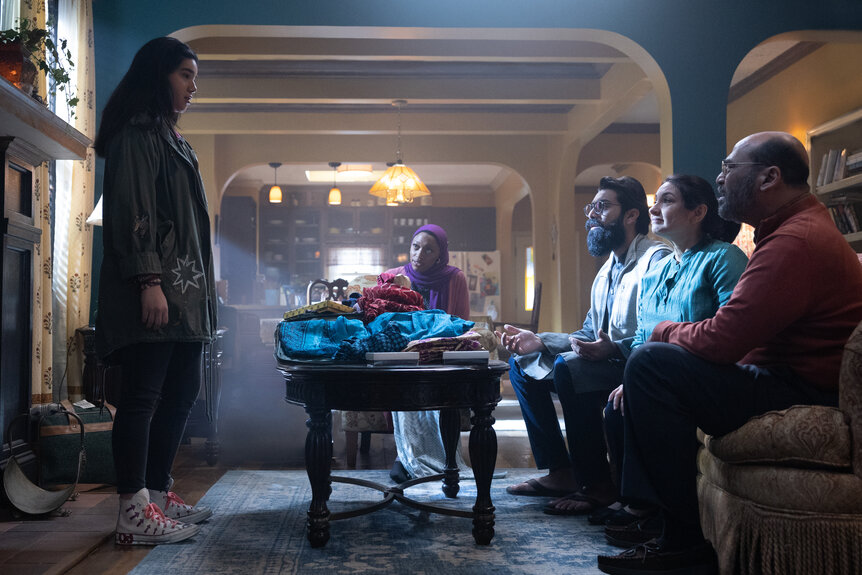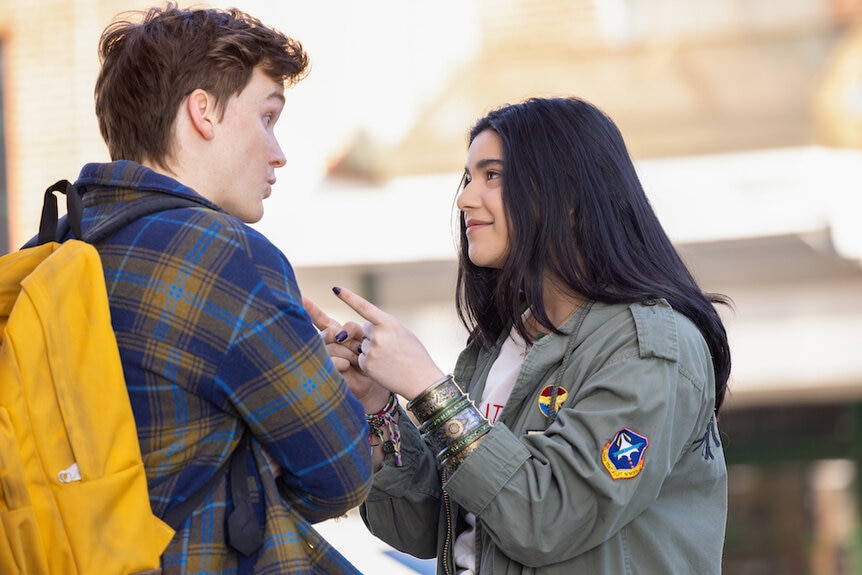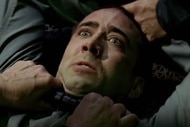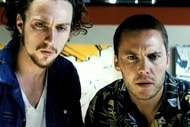Create a free profile to get unlimited access to exclusive videos, sweepstakes, and more!
'Ms. Marvel' head writer explains post-credit cameo & reveals what didn't make the cut in Season 1
Ms. Marvel head writer Bisha K. Ali answers SYFY WIRE's burning questions about the first season of the series.
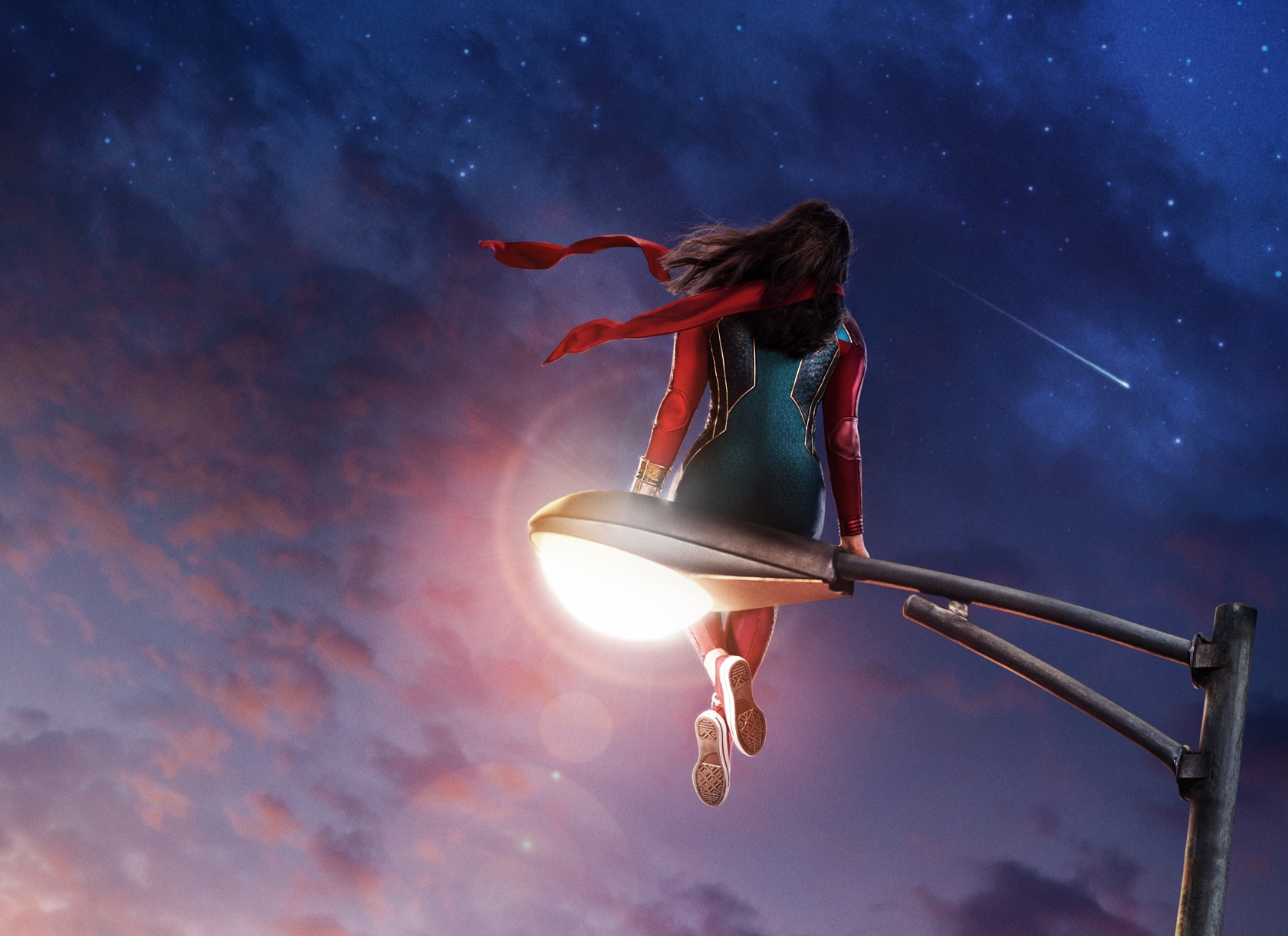
In "No Normal," the first season finale of Marvel Studios' Ms. Marvel, Kamala Khan (Iman Vellani) returned from Pakistan to Jersey City having learned new truths about her family, her history, and her powers. She shared her superhero news with the rest of her family, broadening her support circle, and then thwarted a rogue wing of the Department of Damage Control and got some major news from Bruno (Matt Lintz) about why she has her powers.
Series executive producer and head writer Bisha K. Ali was in charge of staffing and breaking the main narratives for the first season of Ms. Marvel. As a comics fan, genre fan, and self-proclaimed micro-detail geek, charting the story of the very first Muslim/Pakistani superhero was a dream come true and one fraught with potential disappointments. But, having helped land the series which received — and retained — extremely high critical and audience accolades throughout its run, Ali can now exhale and share with SYFY WIRE some answers about the big reveals in the finale and some elements that never made it to screens.
***Spoilers for the first season of Ms. Marvel below***
Now that the world has seen the first season and you can look at it as a completed piece, what are you most proud of that you were able to put across in Ms. Marvel?
One of the things I'm most proud of is the storyline about these four generations of women. And how, for me, the truth of it is that her powers physically manifested by this element that she's inherited. She's an intergenerational being. She's partly that, but really to me, her superpowers are from her family. And especially from this line of women who are just so powerful and beautiful in their own way individually, but also together. I think that was the needle to thread, putting the conflict in at just the right temperature at the beginning and then realizing that it's not about us versus them, in terms of how do I fit into the West? It's more about what is us? What does it mean to me? What does us mean? Who am I, and going into self, and then all the way up to the healing of this intergenerational trauma as a result of partition. I still can't believe that I got it through. We've got partition in a Marvel show! It still blows my mind!
Was the partition episode, "Time and Again," always going to be later in the season, or did you play with where it should land in the season?
That was always later because the audience is discovering it as Kamala is discovering it. She's heard about it growing up. She's heard the story, so the audience hears the story. And she'd heard it clearly a bunch of times, because she and Aamir (Saagar Shaikh) kind of finished the dad's story in unison. They know that their own mother, Muneeba (Zenobia Shroff), has a poor relationship with her mother. She doesn't want to talk about the trauma of that. She doesn't want to unpick it because she doesn't understand it herself, just as Kamala is in this world and kind of clueless as to the depth of this pain, and the depth of the ripple effects that have happened. It feels really true to me in my life, and I think a lot of the other Pakistani writers' lives, is that we don't get to have these conversations. We get don't get to feel it and witness what everybody else has been through. I didn't feel like I wanted to top-load it in any way because you're in this with Kamala. We're really in her perspective. She was discovering it and we're discovering it with her.
And partition is so complex that we don't even get anywhere close to the level of complexity, but it's enough to understand this was quick, violent, and complicated. And then again, the focus was on family and on the individual. Going into the story of Hasan and Aisha, we're in the psychology of them and in the love story. We get that it's horrific and there's no way to overstate that. But again, it's about focusing in on how that affects real people and people that we love and people that we can relate to, and people that we care about. So no, I think that that was always the plan for it to play out in the way that it did.
Was there something you first heard from your community that let you know the show was being received as you had hoped?
One of the things that really affected me and definitely Fatimah Asghar, who wrote Episode 5, was when people were talking about, "I just had a conversation with my parents about what happened to their parents and their grandparents in partition. I've never done that before. I didn't know what they'd been through." The fact that any one family sat in their living room, watched this, and then started talking about the impact of that on their lives — that blows me away. Like, that was why we did it. That's why I fought for it.
That, for me, was a big moment that my instincts aren't completely bananas. I'm right. And, I think there was a lot of apprehension from viewers about how are they going to mess up this time? Which I completely relate to because that's most of Western media today, when it comes to Muslims. So I'm like, "I get it. I hear you." It's frustrating for me, because I've been fighting to make it not that for two years, but also I completely hear you. I feel the same way. Watching many of them in real-time be like, "Wait, this is like my family. Wait, can we trust her?" That's been very vindicating, and very pleasant to watch. I wanted to do right by everybody and that my heart, and my goal, was that from the start. I think a lot of people are picking up what we were putting down. We really, really tried our best to make this feel specific, that it would also honor everybody at the same time.
At the start of "No Normal," Kamala takes the opportunity to tell the rest of her immediate family that she's got superpowers. And then you bookend it with Mr. Khan's lovely rooftop talk with her about her name. Was that always part of your plan to keep those intimate, family-centric moments front and center in the finale?
Absolutely, it always felt like, in the way of those four generations of women and their superpowers, this family that she's with all the time is also a part of her superpower. I think that also comes through. And how we put together her suit, it comes from every kind of family that she has, whether that's Bruno who's a kind of family to her, or whether that's the Red Daggers who become a kind of family to her. And then her mother, obviously, I love when things are symmetrical. Her mum made the Hulk costume and that was rejected, and they weren't able to get it together. And then at the end, she gets it right. All of that was so fundamental to Kamala's character, and it also really feels like it is one of the things that makes her unique in the MCU. She has a "ride or die" crew around her, and they are her parents and her brother, and her sister-in-law. There's something about that which is incredibly charming, but it's, again, very specific and unique to Kamala. And let's make it as clear as possible.
And then, the fear that any parent would have about my teenage daughter is running around, trying to save the world. "Yeah, I raised you well, but please be safe." It's hard to do full service to that in the most grounded way possible because in reality, my parents would be like, "Are you off your head? Absolutely not. You're not leaving the house." [Laughs.] And that's Kamala as well, but she's right. Her parents didn't raise her to stand by and not do anything when someone's in trouble. She's [inferring] that you're the people who are going to support me and you're the people who are gonna turn up when things go wrong. And that was really important too that it's her family, but also her community.
Yes, there are two big moments when her community shows up for her, even if not everyone knows her identity.
Going back to Episode 1, she's also seeking out community when she goes to AvengerCon. She's imitating somebody else and literally entering a competition for accolades from that community. And then in this [episode], the whole community is coming to her and it's a different kind of community that she's bringing in, so that was really important to have two different versions of community. The first one isn't bad, but her approach is entirely different. And that's another moment that we were really set on, that her community is behind her, even if they don't all know if it's her. Her family is really behind her and those are the things that make Kamala so special.
Let's talk about the big confrontation in the high school. Was that always the setting for the DoDC and Kamala's circle?
I'll be completely honest, it was an evolution. There was a whole thread about it being a community center and a story about gentrification. But then, just the nature of production means you've got to truncate. We've got to get things tighter. We've got to be able to physically make the show, so that sequence changed. Hopefully, people can see the intention of where we're coming from in that.
The season finale episode also introduces the very clear embiggened fists which are integral to her powers in the comics. Talk about finally getting to show that.
For me, the final episode was always going to be where she's powered up to the maximum of what is in the show. I generally don't know how powerful she'll be later. But to me, that's what we've been building to this whole time. That's the tension release. People are like, "Why haven't we seen the costume sooner?" I'm like, "This is storytelling, my bro!" [Laughs.] And now that we've got this internal character figured out, how's that gonna manifest physically? That was always going to come right at the end. And also, it's a TV show. It's not a movie. It's gonna happen later because that's how we structure TV.
How did Bruno's reveal that Kamala has Mutant genetics come about because that's entirely native to this show's mythology?
It's humongous. And not a word of it was said in the writers room except for like, "Maybe she could be?" We never really brought it up because we thought it would be impossible. Fast-forward a year later, and they're like, "Guys...."
Originally, one of the puzzles we were working on was—and we had multiple solutions for, but none of them were as perfect as what King Kevin (Feige) has decided on—was, if Kamala's inherited it, why doesn't Aamir have powers? If Sana (Samina Ahmad) put the bangle on, or if Amir put the bangle on, would they just get powers? Would that unlock something in them? For a while, we're like, "Will anyone ask?" And I was like, "Guys, everyone's gonna ask." [Laughs.] Then we wanted to use that to our advantage. Quite far down the line, [executive producer and comics co-creator] Sana [Amanat] brought it up to Kevin, and Kevin was like, "Yeah, go on then." And there it is.
When did the Brie Larson's cameo in the tag come into the conversation?
I didn't write the scene. But the Brie of it all was the hope that the post-credit scene would be Captain Marvel. It was actively my desire for her to not be in the show, overall, because I think that undermines the analogy. At the beginning, when Kamala's looking in that mirror, she's wearing an imitation Captain Marvel cosplay. She wants to be this person. And by the end, it's not that she no longer has admiration for Captain Marvel, but she's seeing herself. This is who I am and I'm literally wearing every part of the people who love me. And so that was really important that that happened, and it was her maturing away from it in a lot of ways. Captain Marvel suddenly coming in would set us on a different path. Someone in the world would have written a brilliant version of that story, but that wasn't for me. I actually am really glad that it played out the way it did. I'd love to work with Brie, don't get me wrong. But I'm really pleased that they wanted the show to be for Kamala, and for Captain Marvel to come at the end. And it's also just such a great teaser of what's to come. What is to come? It's so exciting!
Was that an actual body swap happening between Captain Marvel and Kamala in the post-credits scene, or a new power being revealed?
To me, it was really obvious what was happening — it was a swap. I think it would be bananas for me to introduce a new power for her in the post-credits scene when we already introduced embiggening. I haven't completely lost my mind, guys. [Laughs.] But the distinction is important. And I understand why there's confusion, solely because in Ms. Marvel #1, she literally transformed into Captain Marvel. Do I wish they'd done it a bit more clearly? Maybe. But the ambiguity is fun.
Lastly, as with all Marvel Studios projects, some things just don't make it to the final cut. Any that you wish had stuck?
Will Dunn, who wrote some great drafts of Episode 6, had this one bit at the end, after the community have helped her, she's on the way to go and stop what's happening at the high school. It's her running through the streets. Someone stops and says, "Hey, are you from the Avengers?" And she says, "No, I'm from Jersey City." That's one of my favorite bits but it didn't make it in the end.
And there's loads of stuff I wish was still in the season. I'm a massive nerd and every single writer in the room was a nerd. We have full documents, like textbooks, that we've written on The Clandestines and what the Noor dimension is like. Everything about those characters, we've written their lives out. Also, with Waleed and the Red Daggers. It's hard to cut anything, but I wish we'd had a bit more time with them to land everything that I wanted to land as effectively as I would have liked. I'm still happy with what we created, but you asked the question.
You have already moved onto a new project outside of Marvel Studios, so what did you take away from this experience that has shaped how you are moving forward as a writer?
I feel quite proud of what I've done. I feel like it's taught me to trust my intuition a lot more. It's given me a lot of confidence in those ways. I feel a lot of gratitude also to the number of viewers who have really embraced what we're doing and that, yeah, it's different. If Marvel wanted a show that was more of a direct translation, then I'm not the writer to hire for that. I'm always gonna tell something that's earnest for this kind of show. Anything I write just really mean something to me very personally. I can still point to my heart in this show. And the people who know me can watch it and say, "Oh, my God, Bisha. That's you."
And what I'm excited to do next is direct. Also the fact, that I love genre so much, but there's so many other types of genre that I want to explore. And that's what I'm doing in my next project. Ms. Marvel's been such a great launching pad and it's also been an incredible experience to see how this company does what it does. I've learned so much from their process in terms of what I will do going forward. I just feel gratitude, pride and really grateful to my writers as well. They go so unsung and the show wouldn't exist without every single one of those writers breaking their backs every day to make the show sing. And, yeah, a lot of gratitude towards them as well.
Season 1 of Ms. Marvel is streaming on Disney+.
